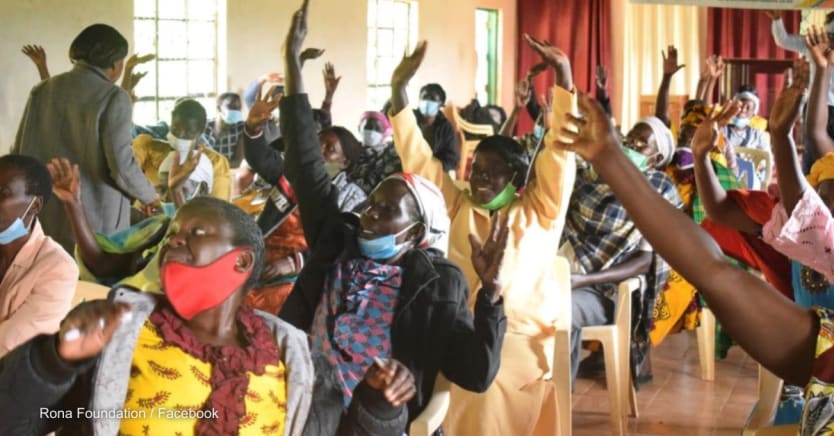
Recently, when I applied for funding for Rona Foundation, a widow human rights organization in Kenya that I founded, I went through a long submission process. It took four months to complete the lengthy and complicated templates, including collecting the intimate personal details of the women with whom we work to prove they needed help. It was demoralizing when the grant-maker rejected the proposal, saying we did not have enough proof of need among the women we serve.
This is not the first time I’ve faced this kind of challenge while running the foundation. I know it is frequently experienced by grant-seekers. To better serve communities, large grant-making bodies need to change how they give out funding — and they can start by looking at grassroots funders’ processes.
According to the findings of a national U.S. study of challenges facing nonprofits that sampled more than 2,700 executive directors, development directors, and nonprofit board members, nonprofits and their funders need to adopt “a profoundly different stance towards fundraising” because the current model is not working.
We need to remember the “human” in humanitarian. If it isn’t about meeting this human need, then what is this whole system about?
—Fundraising challenges often start with proposals. These can require details from individuals about why they need funds, which can be traumatizing depending on the issue. They often require a large amount of evidence and data collection. It can take weeks, sometimes months, to develop a proposal, especially to craft it into “donor language” which can be very academic and divorced from the project context. Sometimes, additional information is requested like audited accounts, past funding history, rental lease, media mentions, etc.
Combined, the existing funding framework places too much burden of proof on those in need and applicant organizations.
In contrast, grassroots organizations like mine that give out small grants require far less proof of need, just brief stories. Take a widow’s request for money for clothes: We will not ask for pictures of her in old dresses to believe that all she had were old dresses. Nor do we ask for pictures of her wardrobe as evidence of her need, nor ask for her account statement with M-Pesa — a mobile money service — to see how well she’d spent whatever funds we gave her. Philanthropy is about the human in need — if she asks for help, I trust that she needs help.
Rural Education and Economic Enhancement Programme, or REEP, Kenya, a nonprofit that provides support to marginalized groups in western Kenya, also does not impose a high burden on grantees. It offers legal support, safe housing, and financial tokens to people it serves who have faced gender-based violence. The victims can contact a dedicated text messaging platform, call a phone number, or do walk-ins to their village facility.
They are listened to and details get verified through phone interviews to local elders, youth, and women leader networks. A simple form and record book is filled by a paralegal officer, then referred to relevant authorities for action, with follow ups.
“There is no standard strategy — the key is our proximity, experience, and past success for timely response of rape, defilement cases, etc. Every case is unique and special — and any delay in response adds more risks. We believe the victim, and act in trust — that’s our approach,” Mary Makokha, REEP Kenya’s director, told me.
Many grassroots organizations do not have long, unclear processes nor ask for data to prove need, nor do we require additional private details to legitimize the ask. For our work at Rona Foundation, we listen to the story of need and then verify by a phone call to our established village networks. We trust the human story and those who tell it.
This simple model may be hard to scale up for big international organizations, but there is hope it could work, as more and more grant-makers are looking to become agents of social change as well as funders. Some have employed approaches seen in the business and investment world — such as supporting startups, delivering incubation programs, and helping to test and scale ideas.
The late Dr. Paul Farmer, a global health champion, understood this inequality of burden and wanted the development community to lift it off the beneficiary and organizations that serve them. Asked if his radical notion of preferential option for the poor has the potential to become a part of the mainstream, as yoga or mindfulness have, Farmer said, “I think there’s even more potential than that.”
I believe so, too.
Overall, we need to see more trust in grant-making. The complicated and discouraging bureaucracy needs to be eliminated. Those who have funds to give need to be clear on what exactly they are asking for, to minimize the burden on those already in need, and those serving them.
On the other end of the funding cycle is a human in need. We need to remember the “human” in humanitarian. If it isn’t about meeting this human need, then what is this whole system about?








